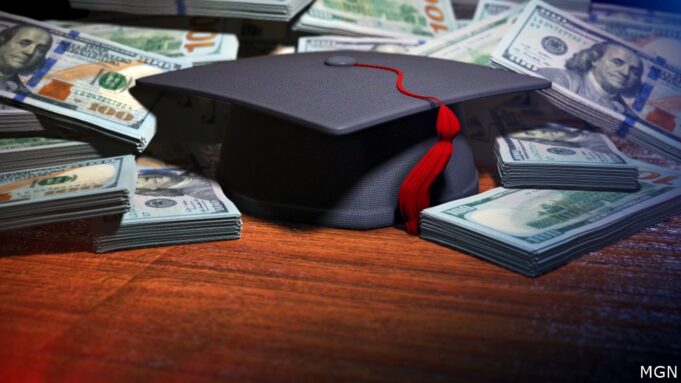by Brett Wilkins
CommonDreams.org
With U.S. federal student loan payments set to resume in a matter of weeks, more than six in 10 borrowers say they’re likely to boycott repayments, an intelligent.com survey published August 16 revealed.
Nearly half of the 1,000 borrowers surveyed believe boycotting could lead to all student debt being forgiven, while three in four respondents also said they think a boycott would be “somewhat” or “highly” likely to help elect politicians who support loan forgiveness.
Some of the write-in responses from borrowers inclined to boycott loan repayments include:
“I simply do not have the money.”
“We have not been paying for so long, so why not just do away with the student loans?”
“Because I think some of the loans are predatory and unfair.”
The vast majority of those polled—82 percent—said they are aware of the potentially serious consequences of not repaying their loans.
Those who said they probably won’t boycott gave responses including:
“Because boycotting doesn’t make [payments] go away, it only puts one in arrears and hurts your credit.”
“I’m worried about what would happen if I did not pay.”
“I’m not going to risk losing my livelihood. The next batch of politicians could be a whole lot worse.”
“I do not think it will make a difference. I do not think the government ever had the intention of loan forgiveness, it was just a campaign promise. I doubt protests will be effective because the government doesn’t care about us.”
After years of activist organizing, President Joe Biden last August announced a plan to cancel $10,000 to $20,000 in federal student loan debt per borrower, a move that drew both praise and admonition from progressives—many of whom wanted to erase $50,000 or even all educational debt.
After right-wing Senate Democrats joined with Republicans to pass a joint resolution to block Biden’s plan, the president vetoed the measure. House Republicans subsequently failed to override Biden’s veto. In June, the U.S. Supreme Court’s right-wing majority struck down the president’s plan.
More than seven in 10 borrowers polled by intelligent.com said they will have to take on extra work in order to prepare for the resumption of repayments. Half said they’ve started a “side hustle,” while 34 percent are working longer hours and 20 percent have gotten an additional job.
Interest on student loans restarts on September 1, with repayments resuming the following month. Just under half—49 percent—of borrowers told intelligent.com they aren’t sure they can afford the looming payments. In June, the U.S. Consumer Financial Protection Bureau warned that one in five of the 32 million federal student loan borrowers it tracked “have risk factors that suggest they could struggle when scheduled payments resume.”
According to the Education Data Initiative, there are 43.6 million federal student borrowers owing a total of nearly $1.8 trillion. The average federal student loan debt balance is $37,717, with public university students borrowing an average of nearly $26,000 to earn their bachelor’s degree.
The new survey also found that 81 percent of respondents likely to vote in the 2024 presidential election are “somewhat” or “strongly” influenced by candidates’ views on student debt forgiveness.
The Biden administration has now initiated a lengthy rulemaking process that involves Higher Education Act of 1965, which legal experts argue empowers the secretary of education to eliminate loan balances. Some campaigners have expressed concern that the backup plan for debt forgiveness could also be struck down by right-wing lawsuits.













